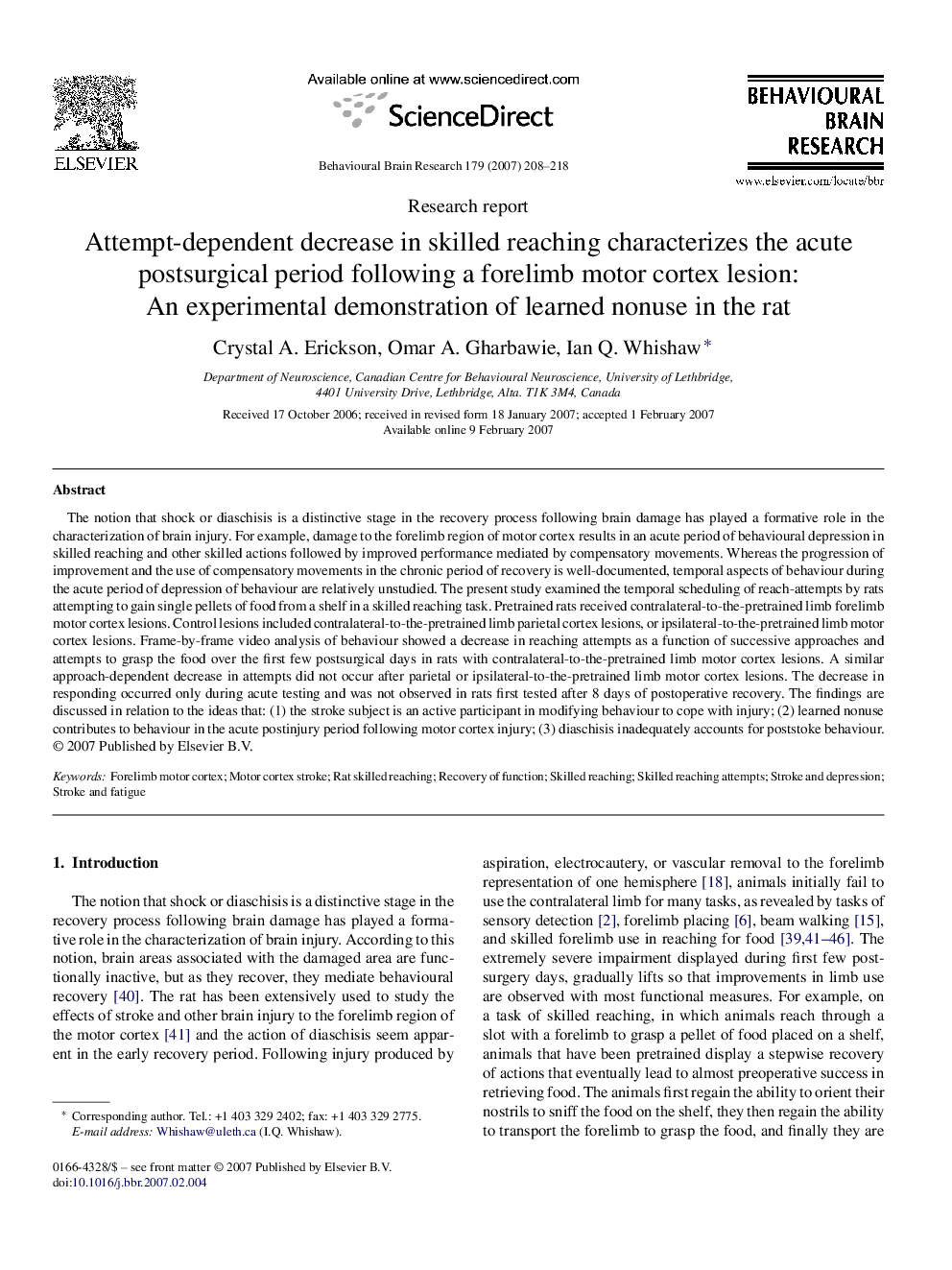| کد مقاله | کد نشریه | سال انتشار | مقاله انگلیسی | نسخه تمام متن |
|---|---|---|---|---|
| 4315667 | 1290090 | 2007 | 11 صفحه PDF | دانلود رایگان |
عنوان انگلیسی مقاله ISI
Attempt-dependent decrease in skilled reaching characterizes the acute postsurgical period following a forelimb motor cortex lesion: An experimental demonstration of learned nonuse in the rat
دانلود مقاله + سفارش ترجمه
دانلود مقاله ISI انگلیسی
رایگان برای ایرانیان
کلمات کلیدی
موضوعات مرتبط
علوم زیستی و بیوفناوری
علم عصب شناسی
علوم اعصاب رفتاری
پیش نمایش صفحه اول مقاله

چکیده انگلیسی
The notion that shock or diaschisis is a distinctive stage in the recovery process following brain damage has played a formative role in the characterization of brain injury. For example, damage to the forelimb region of motor cortex results in an acute period of behavioural depression in skilled reaching and other skilled actions followed by improved performance mediated by compensatory movements. Whereas the progression of improvement and the use of compensatory movements in the chronic period of recovery is well-documented, temporal aspects of behaviour during the acute period of depression of behaviour are relatively unstudied. The present study examined the temporal scheduling of reach-attempts by rats attempting to gain single pellets of food from a shelf in a skilled reaching task. Pretrained rats received contralateral-to-the-pretrained limb forelimb motor cortex lesions. Control lesions included contralateral-to-the-pretrained limb parietal cortex lesions, or ipsilateral-to-the-pretrained limb motor cortex lesions. Frame-by-frame video analysis of behaviour showed a decrease in reaching attempts as a function of successive approaches and attempts to grasp the food over the first few postsurgical days in rats with contralateral-to-the-pretrained limb motor cortex lesions. A similar approach-dependent decrease in attempts did not occur after parietal or ipsilateral-to-the-pretrained limb motor cortex lesions. The decrease in responding occurred only during acute testing and was not observed in rats first tested after 8 days of postoperative recovery. The findings are discussed in relation to the ideas that: (1) the stroke subject is an active participant in modifying behaviour to cope with injury; (2) learned nonuse contributes to behaviour in the acute postinjury period following motor cortex injury; (3) diaschisis inadequately accounts for poststoke behaviour.
ناشر
Database: Elsevier - ScienceDirect (ساینس دایرکت)
Journal: Behavioural Brain Research - Volume 179, Issue 2, 16 May 2007, Pages 208-218
Journal: Behavioural Brain Research - Volume 179, Issue 2, 16 May 2007, Pages 208-218
نویسندگان
Crystal A. Erickson, Omar A. Gharbawie, Ian Q. Whishaw,